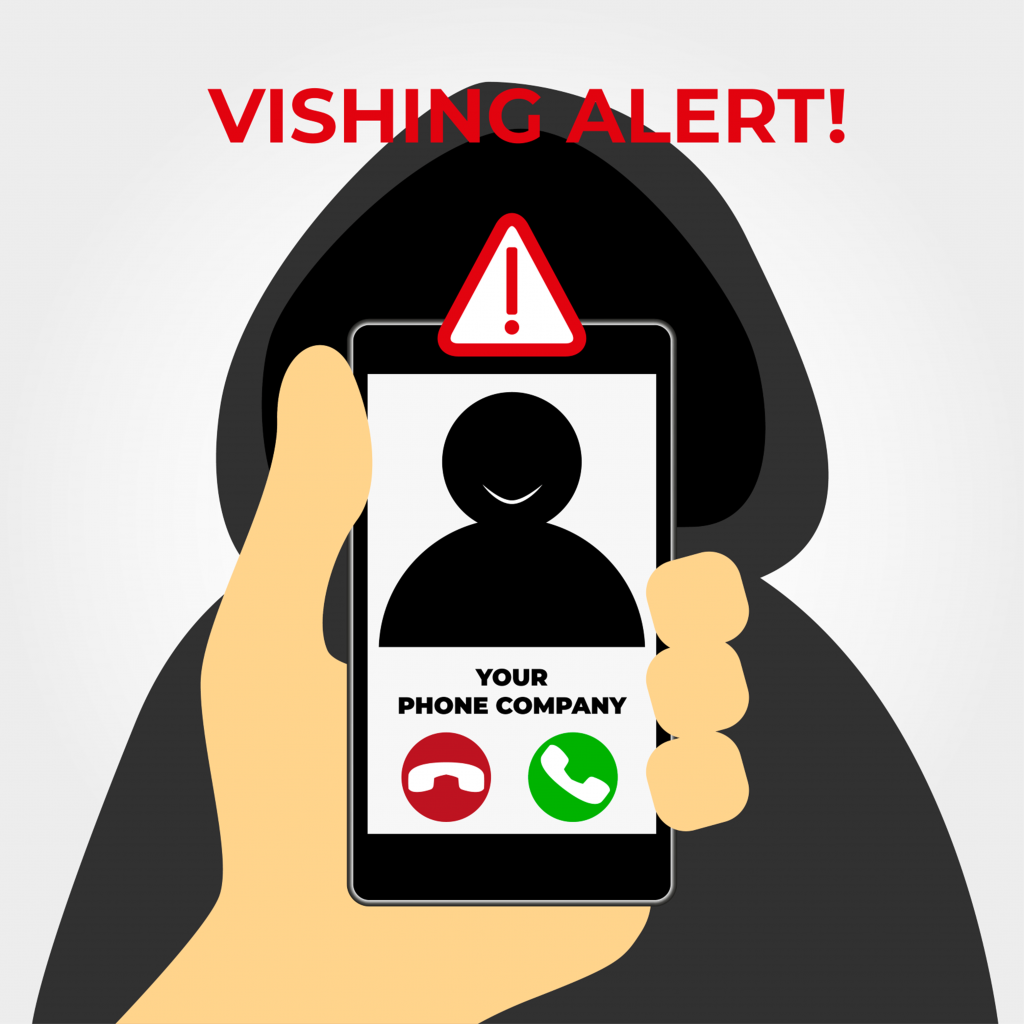

Vishing, or ‘voice call phishing’ involves phone-based phishing attempts to trick you into providing your personal information such as online banking passwords, confidential details or to persuade you to transfer money from your account.
Often, through the research carried out, the fraudsters will have your name, address, colleague names and bank details, essentially the kind of information that you would expect a genuine caller to have. The phisher may call claiming to represent your bank, the police, or the government. Next, they scare you with some sort of problem and insist you clear it up immediately by sharing your account information or paying a fine.
Vishing attacks can be as varied as phishing attacks. Some of the most common pretexts used in vishing include:
Account Issue
A visher may pretend to be from a service provider claiming that an issue exists with a customer’s account. They will then ask for personal information to “verify the customer’s identity.”
Government Representative
A vishing attack may include an attacker masquerading as a representative of a government agency. These attacks are typically designed to steal personal information or trick the victim into sending money to the attacker.
Tech Support
Social engineers may pretend to be tech support from large and well-known companies like Microsoft or Google. These attackers will pretend to help to fix an issue on the victim’s computer or browser but actually install malware.
Here are some signs to look out for:
Bank of St Helena may contact you by telephone but would not request your Local Debit Card number, PIN or Online Banking Customer ID / password. To verify your identity, you will be asked for your Security Information which includes your Card Security Number (Local Debit Card) and memorable questions (Online Banking).
If you need help blocking your Bank Cards or changing your Online Banking Details please contact us on
(+290) 22829
This website uses cookies to improve your experience. We'll assume you're ok with this, but you can opt-out if you wish. By clicking 'Accept All' you consent to the use of all cookies. You may change this by visiting 'Cookie Settings' to provide a controlled consent of which cookies we use. Read More
| Name | Domain | Purpose | Expiry | Type |
|---|---|---|---|---|
| wpl_user_preference | sainthelenabank.com | WP GDPR Cookie Consent Preferences | 1 year | HTTP |
| Name | Domain | Purpose | Expiry | Type |
|---|---|---|---|---|
| _ga | sainthelenabank.com | Google Universal Analytics long-time unique user tracking identifier. | 2 years | HTTP |
| _gid | sainthelenabank.com | Google Universal Analytics short-time unique user tracking identifier. | 1 days | HTTP |
| _gat_gtag_UA_160972869_1 | sainthelenabank.com | Google Analytics | Session | --- |
| _wpfuuid | sainthelenabank.com | Online Forms | 11 years | --- |